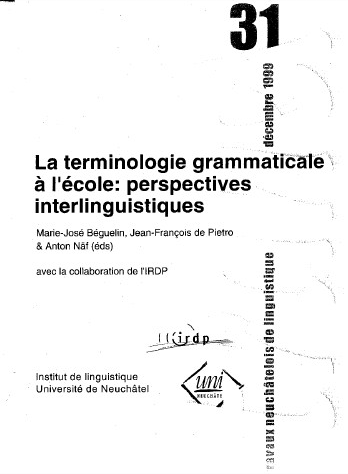Faut-il continuer à parler d’attribut et d’épithète dans l’Europe d’aujourd’hui?
DOI :
https://doi.org/10.26034/tranel.1999.2671Résumé
In the past, European Grammar was partly modelled on Latin grammar. Of course this Latin-based model often obscured the real nature of our modern languages, which are fundamentally different from Latin, but the descriptive approach was relatively homogeneous. Now, more especially since the 1950s, grammarians and linguists have largely rejected the old model in favour of a great variety of descriptive approaches which differ from a country to another. In the last fifty years, the most obvious development in grammar is that the subject itself has divided and divided again. Grammar today is, in effect, several grammars, that is a great number of grammatical theories and terminologies, some of which contradict others.
One of the main aims of our paper is to clarify this confusion and find the base of a mutual agreement beetween Europeans on some important points of discord, such as grammatical concepts of attribute, predicate, epithet, object and object complement. Can we bear any longer that English grammars respectively call attribute and object complement what French grammars call épithète et attribut de l’objet? Why is the German Prädikat so limited – the verb seen as a syntactic component and nothing more – when the English one is usually so large (including objects and adverbial phrases)? Why does a Portuguese grammarian include adjectives in the category of nouns when a French makes two different categories of them? Finally this paper not only asks questions, it also answers some of them and brings proposals with a view of making the thing easier for European children of the next millenium.


